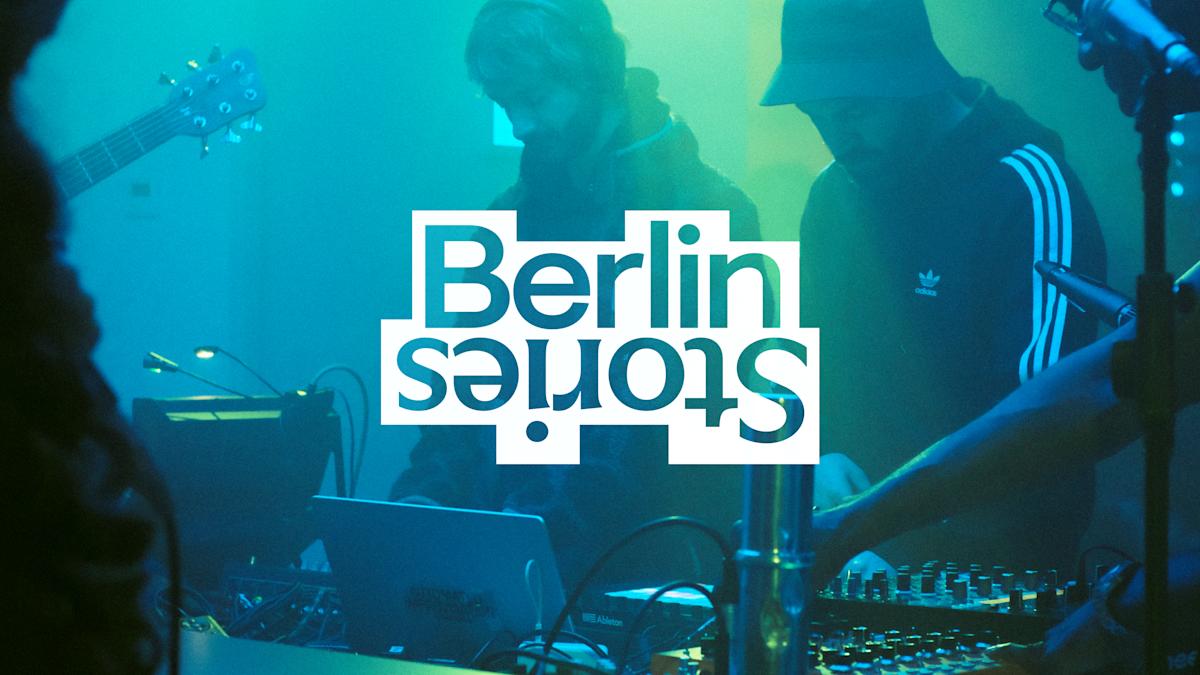
Berlin Stories
This week: Black history month, fusion soundscapes, soli kufa
Loading
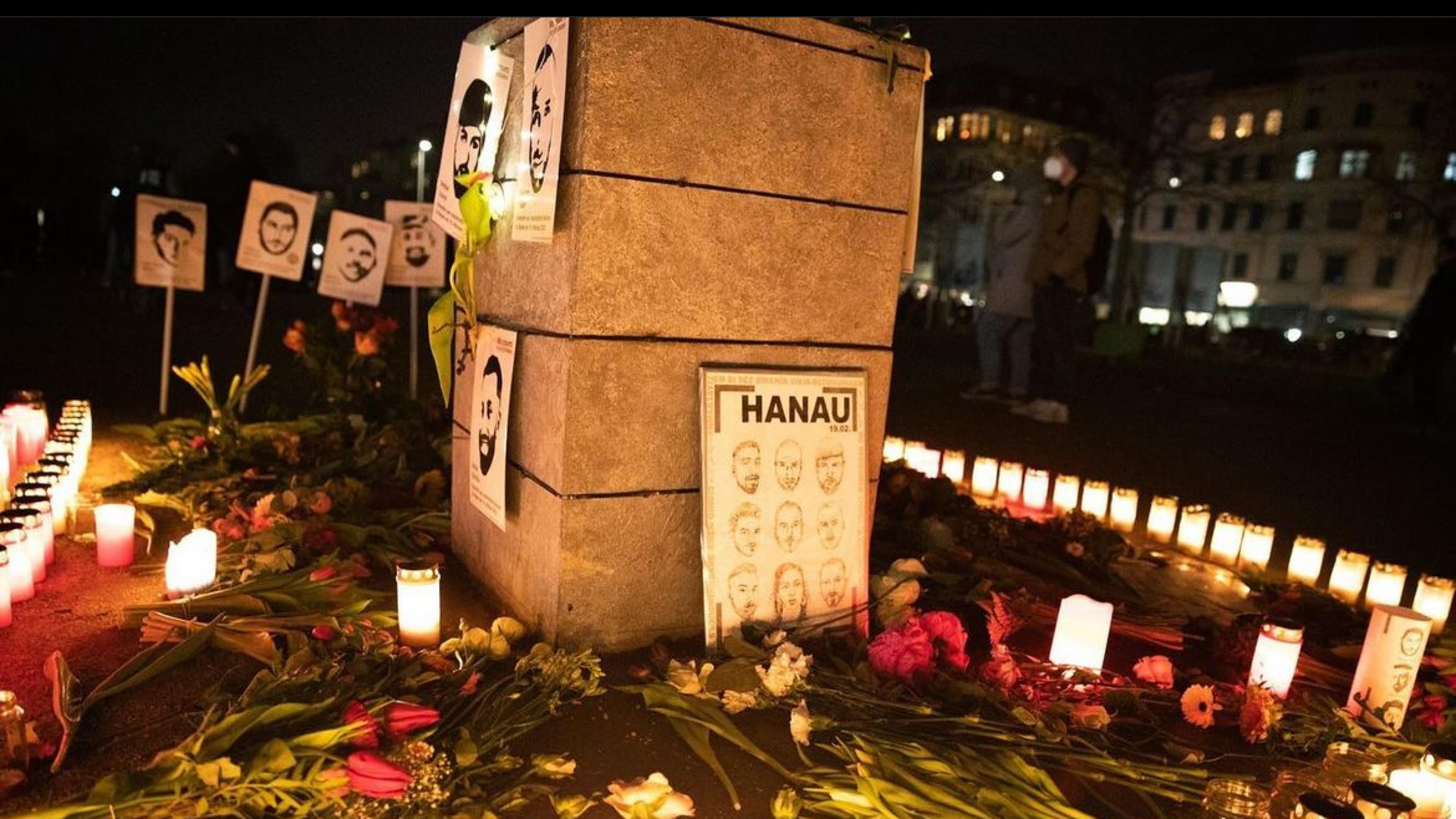
A transcribed interview with Migrantifa and Global South United.
By Staff
Next Monday marks the fourth anniversary of the Hanau shootings, a right-wing terrorist attack that changed Germany's political landscape.
Hanau illustrated the dangerous rise of the far right and the ongoing failure of the German police to protect the vulnerable against extremist violence. It became the impetus for a new wave of anti-racist and anti-fascist organisations – including groups like Migrantifa.
The slogan of this year's Hanau demonstration in Berlin is "The Consequence of Resistance", and it will start from 17:30 at S-Bahn Sonnenallee. The event will begin with a commemoration of the 9 people murdered in Hanau: Gökhan Gültekin, Sedat Gürbüz, Said Nesar Hashemi, Mercedes Kierpacz, Hamza Kurtović, Vili Viorel Păun, Fatih Saraçoğlu, Ferhat Unvar and Kaloyan Velkov.
Read an excerpt from Tuesday's show (full transcript available here) featuring members of the organisations Migrantifa and Global South United, to find out more about what happened in Hanau, its impacts, and their methods for mourning and resistance.
Lama (host): Hi all, thanks for tuning in. This is Lama live from the Refuge Worldwide studio and joined by Fatma from Migrantifa.
Fatma (Migrantifa): Hello, thank you for having me.
Lama: Thank you for being here. Our chat today is going to focus on the upcoming four-year mark of the attacks in Hanau. We will discuss what happened, talk about organising as a collective strategy, and dig deep into what resistance means today in the face of so many connected struggles. Next week, on 19 February, Migrantifa, alongside other groups, including Global South United, Palästina Spricht, Jewish Bund, and Kreuzberg United, are organising a commemoration of the Hanau attack and a demonstration. Let's start by going back to what happened in Hanau in 2020.
Fatma: On 19 February in Hanau, a right-wing fascist terrorist murdered nine people in a shisha bar [and other locations]. It was not a surprise. It was really, just a question of when it would happen. He murdered them, and afterwards, he killed himself and his mother. So there wasn't any way to prosecute him or anything.
When he murdered the people in the bar, there were many things that… I don't want to say went wrong, because they could have been prevented, and wasn't a coincidence that they went wrong. For example, the emergency exit of the bar was locked. It was locked a few weeks prior by the police to ensure that if the police raided the place, people couldn't escape. They had this idea that the migrant people in the shisha bar were dealing drugs and doing illegal stuff there, so they would have to raid it and they wanted to make sure that people would not be able to escape in any way.
That's in the end what killed people, because afterwards, when people were looking into what happened in Hanau, they realised that if the emergency exit had been open, they could have escaped and nine people wouldn't have died.
It was a big shock for all of us when Hanau happened, but it wasn't like: 'Oh, how could this happen? We never thought this was this would happen.’ To us, it was a question of when it would happen. When it happened, many of us went into this mode of confusion, terror, and fear. And until today, there have been no consequences for what happened in Hanau. The attacker killed himself and the police are saying: ‘Well, we did the best we could.’ The killer had already sent letters with right-wing conspiracy theories to parts of the German government. He was known as very right-wing in his circles and at his workplace. He said that the AfD is too moderate that's why he was not voting for them. So he was known. The police could have known, but they decided to look away.
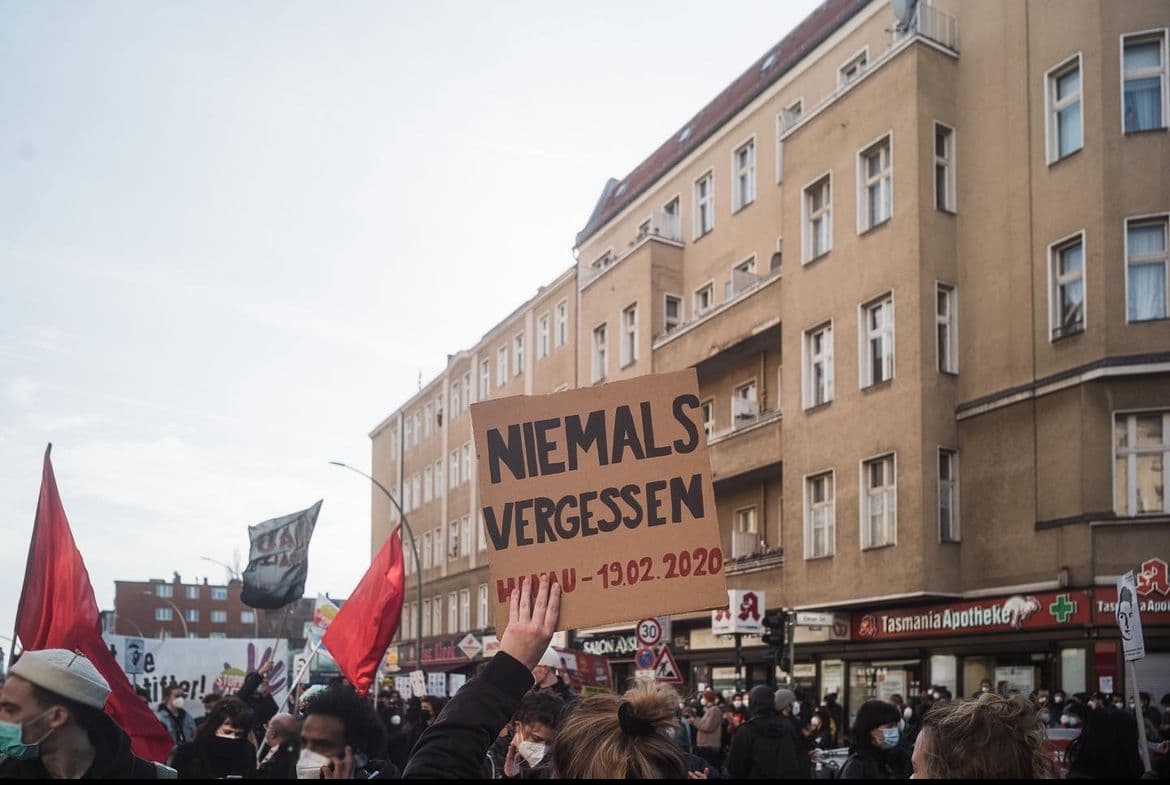
Lama: I know that it was a very significant moment of mourning, but also a very significant moment for organizing. It became a central historic instance, around which Migrantifa was formed and organised.
Fatma: Yes, Migrantifa was formed directly after Hanau because of this shock, which made us ask: What can we do when you realise that the state is not protecting you, the police, the politicians, the law, are not protecting you? You have to protect yourself and your friends, your comrades, and your family. We have to protect each other because the state isn't doing it. I remember after Hanau, I saw a picture of Nancy Faeser, who was one of Germany’s ministers for inner affairs. She went to Hanau and in the picture, it was her and the father of one of the people who were murdered. She was crying and the father was consoling her. It made me so angry because those were alligator tears, she was crying as if she isn't part of the system that murdered these people, as if it was this Einzelfall [isolated case] - a term always used to describe right-wing terrorist attacks, meaning that it's just one crazy person who attacked and murdered people. But that is not the case. It is structural. In the system, they are pushing the narrative that we are the problem.
Nancy Faeser, for example, who cried back then, and had to be consoled by the father of one of the victims, is now dedicatedly pushing this narrative of there being too many migrants so we have to deport more and more. This is the idea that we are the problem. If the migrants and the refugees go away, everybody will have enough money and safe housing, and everything will be fine. This is a system that profits from this narrative, and at the same time, has built up this narrative.
Capitalism wasn't built for the working class. It wasn't built for us. It was built for those politicians who are saying that we are the problem, while they and the bosses and so on, are putting profits into their pockets day by day. I think many of us didn't have this analysis of knowing what the bigger problem is. But through this shock, we came together and shared our knowledge or feelings and realised together, collectively, who is the enemy, who we need to fight, and that we need to do it together. Because as I said, they will not protect us. They are actively fighting us. The system is actively fighting and murdering us. So we had to organise because otherwise, it felt like we couldn't do anything.
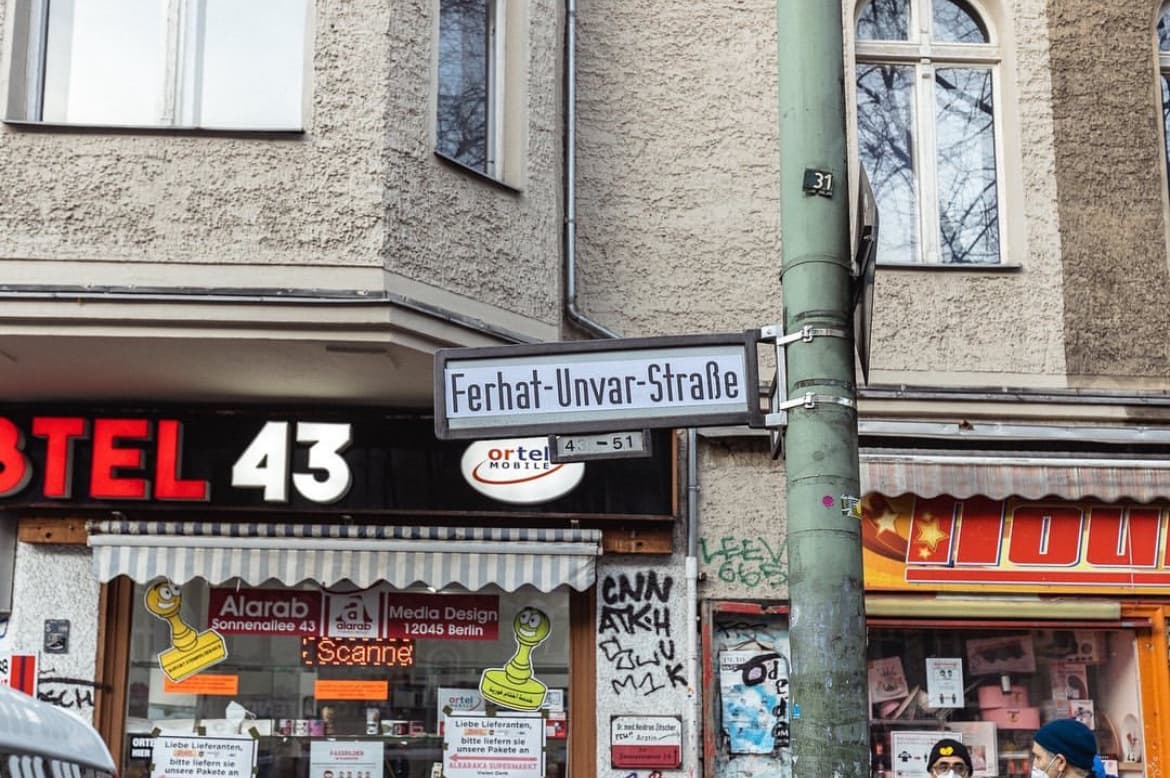
Lama: What you're planning for 19 February, a big part of it, alongside the demonstration, is the commemoration - a kind of mourning together. Maybe we can talk a little bit about how mourning is this collective and political emotion, and how that could also be central or important to organising.
Fatma: I feel like there are many different ways one can mourn. It can be a sense of sadness, it can be anger, it also can be a celebration like dancing and singing together. For example, what we did last year at the commemoration and demonstration for Hanau, we read the names of all the people who have been murdered by right-wing attacks. We thought, maybe this will get boring for people, maybe people will not understand. But after like 10 minutes, the entire Herrmanplatz was silent. No one was speaking, everyone was emotionally touched and collectively we had this moment of mourning, and understanding that these things happened. The list is so long that we stood there for at least 10 minutes, 15 minutes, 20 minutes, just reading these names. So mourning is also a form of collectively feeling and collectively realising and understanding what pain we are going through and what causes that pain.
Lama: Thank you for answering that. I also want to bring in Leila from Global South United, who just joined us. Global South United are organising this commemoration in this demonstration together with Migrantifa and the other groups that I mentioned earlier. I know that the work of Global South United comes to this history and this event from another perspective. Leila, can you share a little bit about how Global South United are involved in this and why this is also an important instance for them to be sharing with others?
Leila (Global South United): Thank you so much for your question. Global South United was started after we faced huge repression from the state when we demonstrated for Palestine. For us, it was very important to take part in this demonstration. We believe that the fight against state repression should be united. We experience every day that the state is trying to divide this fight and split the front. That's why we wanted to be part of this fight against repression and for solidarity. Most of us are refugees and immigrants, who are facing racism daily. Hanau is, so to say, the last form of this racism, that we are being killed and streets without being able to rely on any group or state to protect us.
Lama: The slogan for the demo this year is 'the consequence is resistance'. So I would open up here to both Fatma and Leila, to say a little bit about what resistance means to them, but also to the groups that they organise with.
Fatma: Resistance is, at this point, a widely used term. People believe that anything they do could be a form of resistance. Especially in the context of the Ukraine war more than in this situation, because that was what white people cared more about, I've heard many people say: don't forget to rest and to take care of your health and get some wellness treatment. This is such a whitewashed and capitalist way to resist. It's this idea of 'Oh, when I get my rest, I will be able to resist the system'. The question is: at what point will you then actually resist this system? And why is your way to resist just to put your own pleasure at the forefront of your so-called resistance?
This is a sad but real analysis that people have of resistance. The idea is that they need to feel the best they can for themselves and that this is resistance already. The idea of capitalism is that you have to work and do everything, so by resting you are already resisting the system. But this is exactly the shape of resistance that capitalism has in mind for us. It's an alienation, the idea of being alone as resistance. This idea is that collectively, we just get exhausted because we have been exhausted in this system so much. When you look at resistance in a political way, you have to realise that it is sometimes not relaxed. It is a long-term fight, it is exhausting.
There's a lot you have to do in political work, for example. It is so much more than just resting and meeting your friends. Yes, it can be singing and laughing, and so on, but it's also a fight and a struggle. I remember one comerade said very fittingly, that when resistance is only for yourself and in your head, it's something like privilege porn. We have to be mindful to keep the resistance collective, keep the fight collective, and make sure that we take care of each other, but also take care of the fight against the system, because this system is not resting. This system is constantly organising against us. So the only thing we can do to properly resist that is organising together against the system.
Leila: I can only build on what Fatma said. At Global South United, we see resistance as a daily practice. Since we suffer and face this repression collectively, we believe also that the resistance should be done collectively. It's also very important to speak about rest as as a part of resistance, but what kind of rest and how we do it is very important. Resistance can have many shapes. It can be armed resistance, collective rest, crying together, going to the streets together, or challenging the state and repression. We try to find a balance between this daily repression and daily resistance that we have to do as individuals but also as a group and as a collective.


This week: Black history month, fusion soundscapes, soli kufa
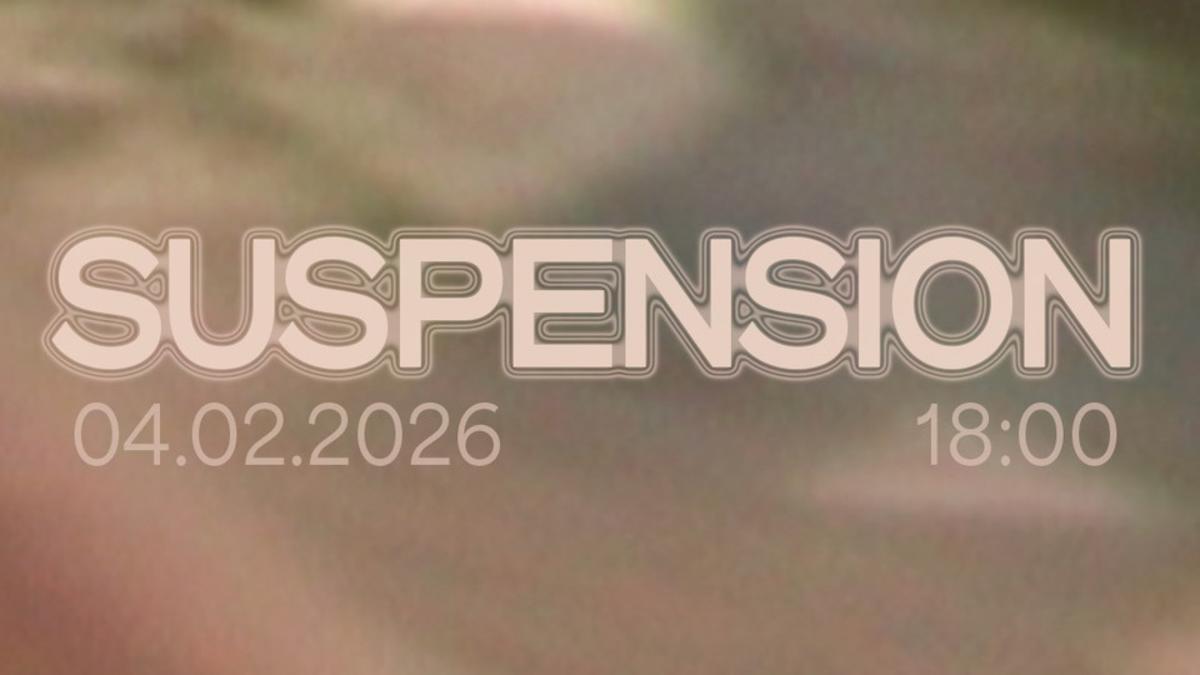
A screening, conversation, and live performance at Niemetzstraße 1.
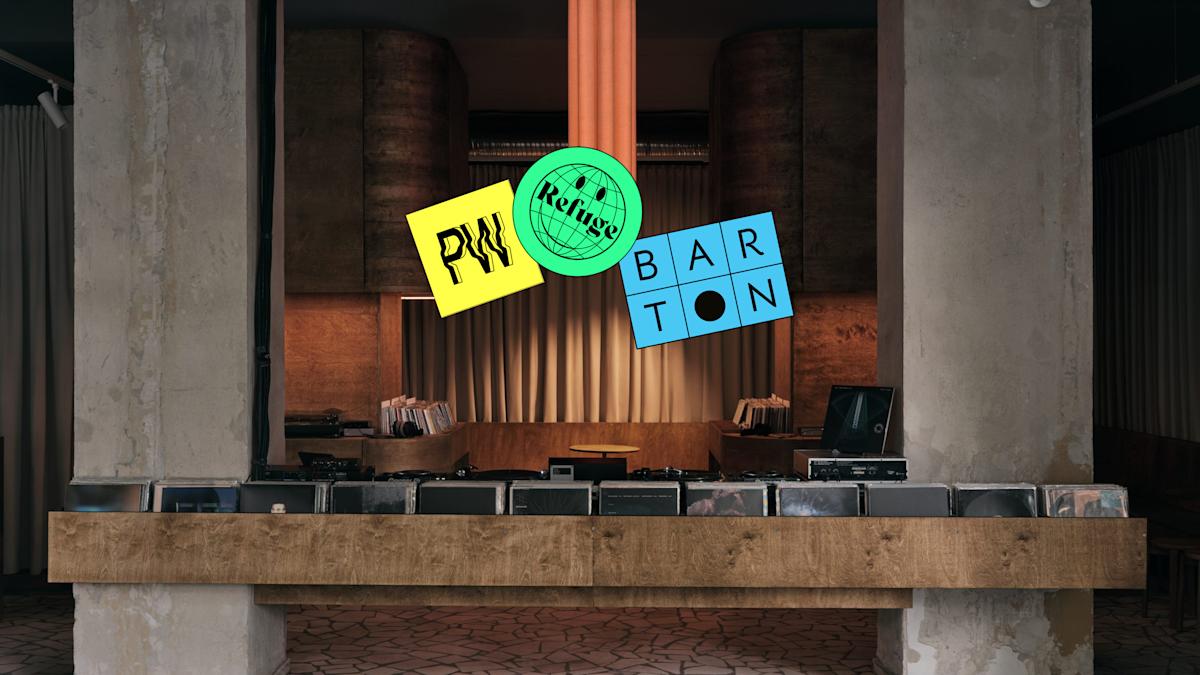
Refuge Worldwide residents head to Romania.